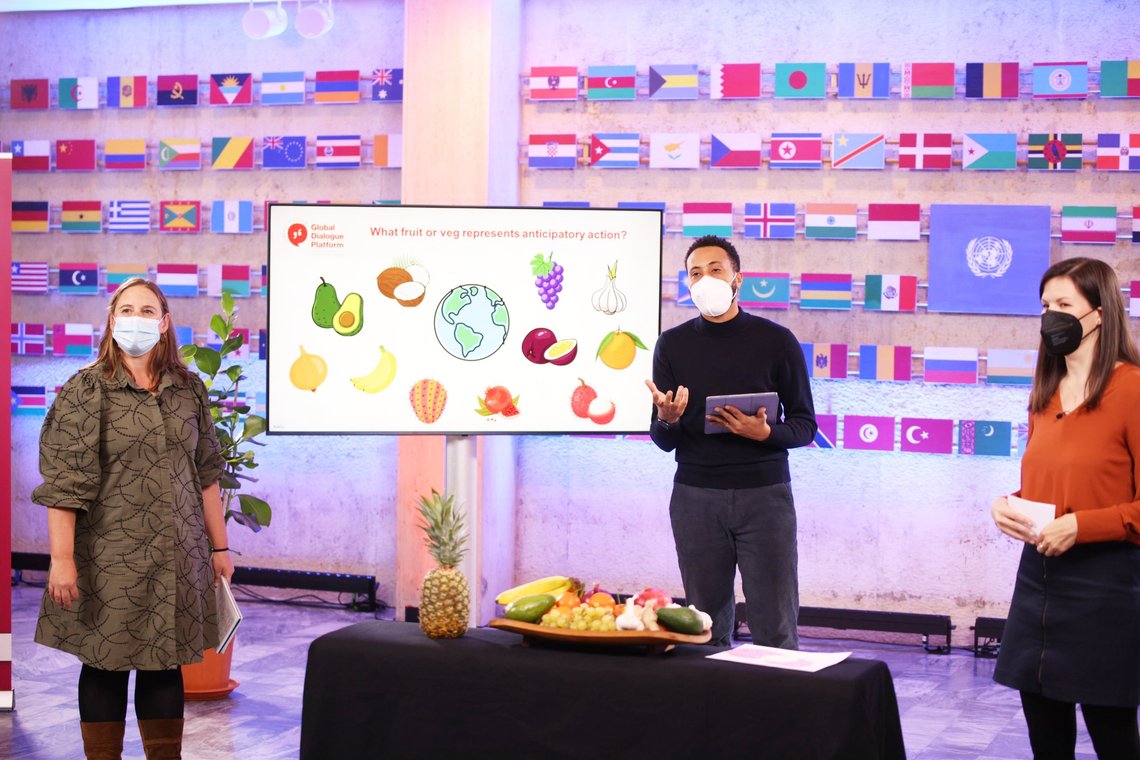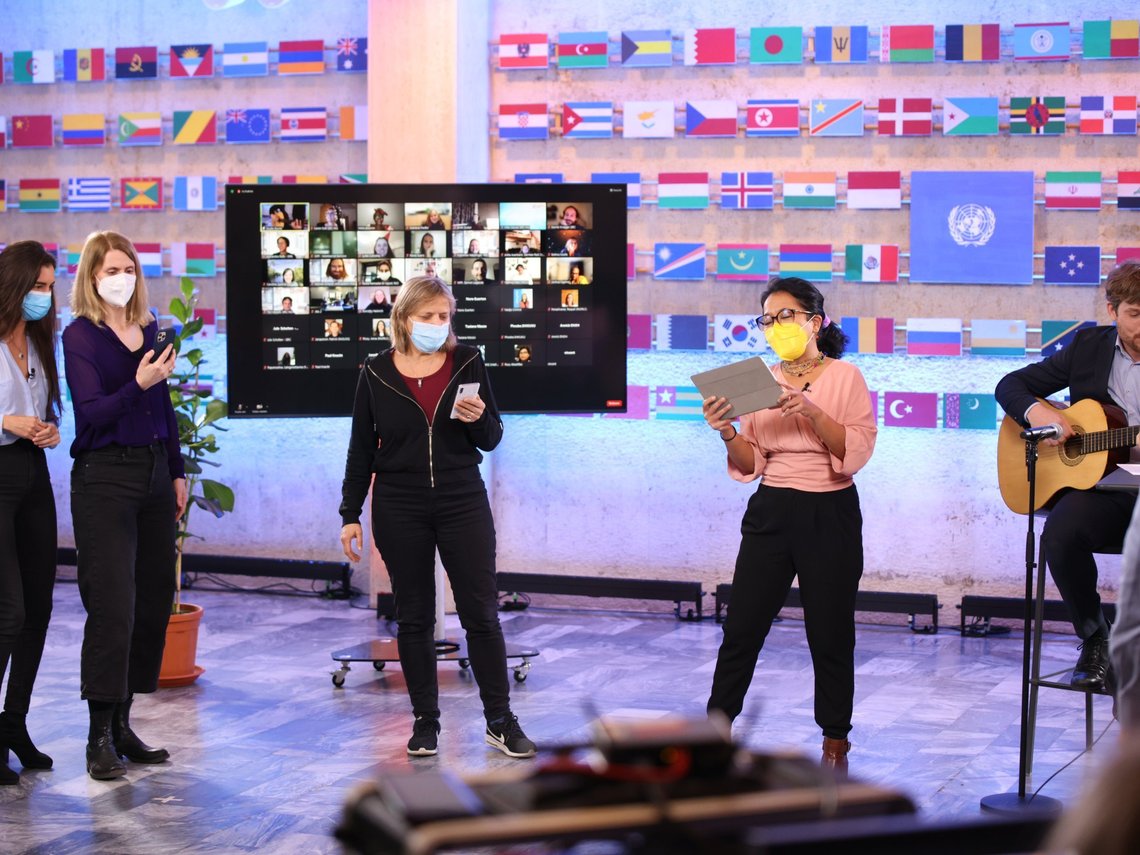Categories
New actors, new faces and renewed ambitions: highlights from the 9th Global Dialogue Platform

The 9th Global Dialogue Platform on Anticipatory Humanitarian Action was the largest to date, with 1,177 people logging in for this virtual event over three days. This growing interest in anticipatory action is encouraging, coming at a time when more people than ever are facing the impacts of predictable shocks and crises.
This growing need was reflected in the focus of this year’s event, ‘Meeting the challenges of future crises: protecting lives and livelihoods with anticipatory action’. Among the many crises happening today, food insecurity was in the spotlight, and several speakers suggested ways to advance the role of anticipatory action in alleviating food crises. “Advancing the interaction between science and policy will be a crucial precondition to make anticipatory action work at scale, to anticipate food crises and make agri-food systems more resilient,” noted Dr Qu Dongyu, Director-General at FAO.
Other sessions asked how anticipatory action can be expanded in coming years. One issue under discussion was how we can apply anticipatory approaches in situations when climate change and conflict coincide; another session asked us to challenge our assumptions about anticipation, food security and climate change. Throughout the event, participants shared their experiences and lessons learned, while also highlighting potential ways forward.
The good news is that support for anticipatory action is gathering pace. There were plenty of new faces at the Global Dialogue Platform, including representatives from the private sector, donors and governments. They offered fresh perspectives during the event, and shared their experiences to date of working with anticipatory action. “Sometimes it is not the problem of the forecast … but that the communication was not right,” noted Joseph Insitful from the Green Climate Fund.
A number of new initiatives were also announced over the three days. One was the FAO-WFP joint anticipatory action strategy, which aims to further strengthen coordinated action at global, regional and local levels ahead of shocks, to protect the food security and nutrition of those most vulnerable. Others included the 4As partnership to gather academic evidence about the impacts of anticipatory action, and a new project that will apply disaster-loss data to support early warnings and early actions in Africa.
The WMO launched their expanded guidelines on multi-hazard impact-based forecast and warning services during the event - an essential tool for those practicing anticipatory action. Announcing this, Professor Celeste Saulo noted the importance of working in partnership: “If we cannot work together, the public and those we serve will not get the best of us.”
This year also marked the Anticipation Hub’s first birthday. During an interactive lunchtime session, participants helped us celebrate and shared their feedback on how to develop in the coming months and years; for example, more knowledge exchange and learning, and further documentation of practitioners’ efforts.
The Global Dialogue Platform is over for another year, but there is still the chance to catch up with the conversations that took place.
Videos from the event can be found on this YouTube playlistThe Liveblog is still open, where you can find summaries and recordings (coming soon) from each session.
Share your feedback on the Global Platform - see survey here.
See the the Liveblog and the recordings here
Highlights from the 9th Global Dialogue Platform
This video summarizes the main highlights and outcomes from the event.
Play Video

See you in 2022!
The Global Dialogue Platform was hosted by the Anticipation Hub and co-organized by the Food and Agriculture Organization of the UN (FAO) and the World Food Programme (WFP). It was organized in collaboration with the German Red Cross, IFRC, the Climate Centre, the START Network and OCHA, with support from the German Federal Foreign Office.

